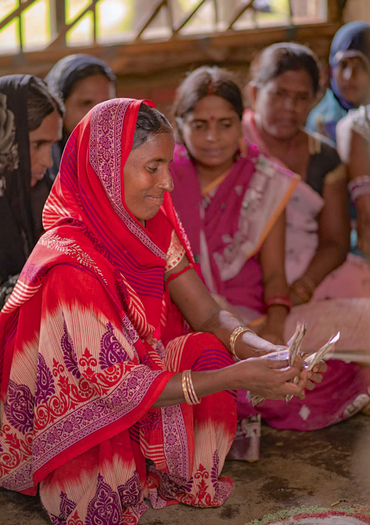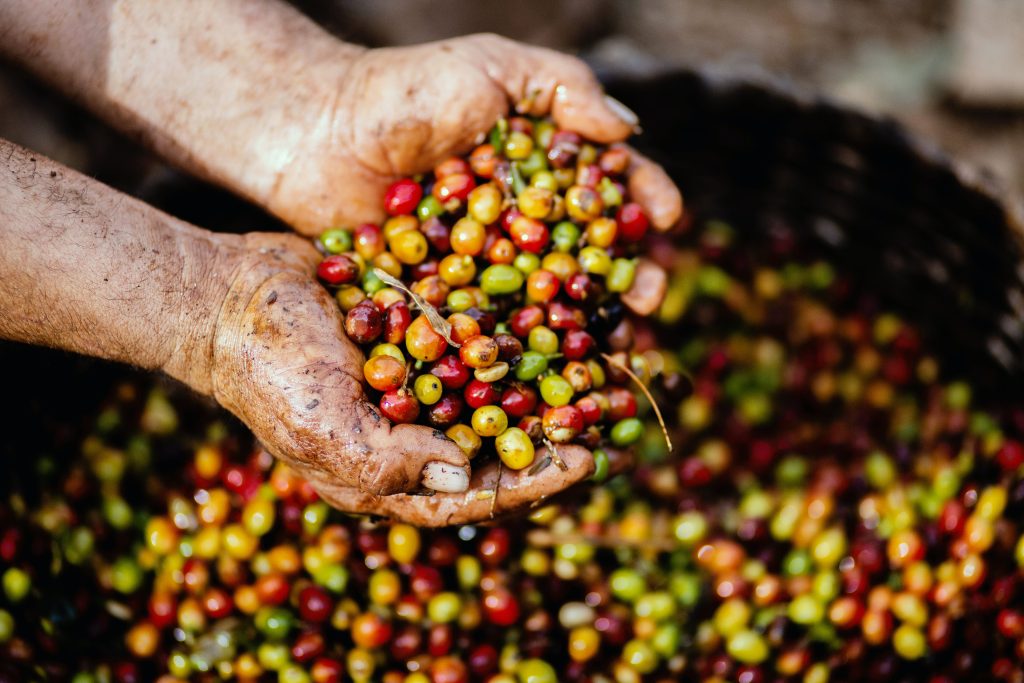But women farmers in the country’s Kayonza district are forging change — together.
More Women, More Power
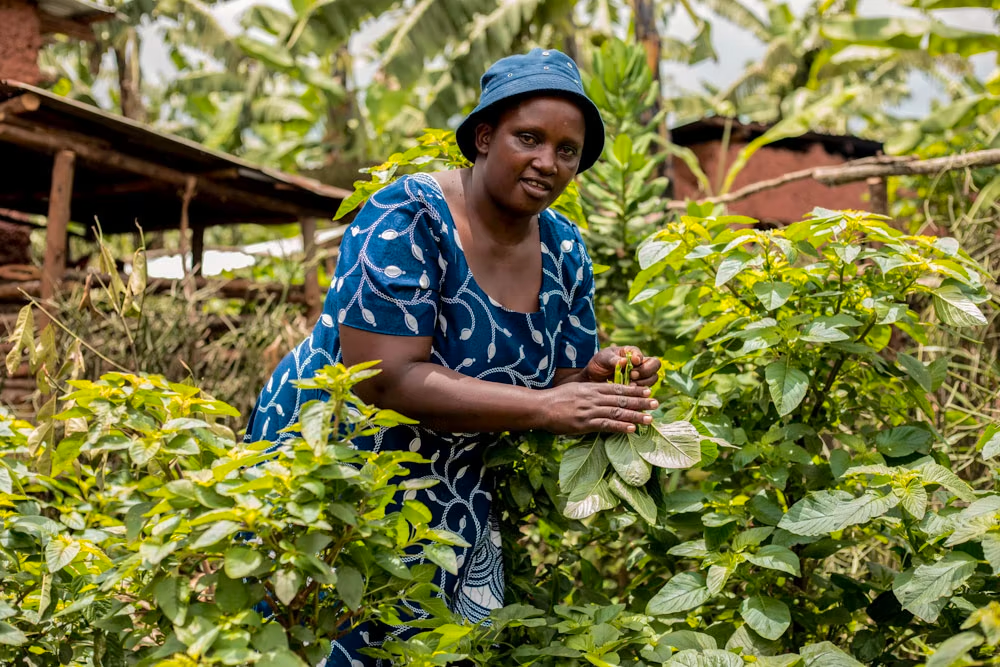 Photo: Heifer International
Photo: Heifer InternationalIn June 2020, at the height of the COVID-19 pandemic, 40 women from a Heifer Rwanda project formed a women’s group through which they could receive training, save money, sustain their livelihoods at a time of unprecedented need — and collaborate to help each other grow over the long term.
The women called their group Urumuri, the local Kinyarwanda word for “the light.”
Driven to improve their farms, the Urumuri women’s group established a Livestock Farmer Field School, a structure in which the women could receive additional practical training, like how to raise animals and cultivate fodder with the support of a demonstration plot and a Heifer-trained instructor. They also received training on cooperative management, gender and nutrition, and savings and credit.
“The good thing about working in the group is that it encourages you to work together,” said Dative Mujawamariya, a group member, livestock farmer and mother of three.
“When you bring your efforts together, you can achieve a lot — as a group and as individuals. To be in a group accelerates the speed to achieve many things compared to working alone.”
“The women called their group Urumuri, the local Kinyarwanda word for “the light.”
To build on their new knowledge, the women started saving money together to address their immediate financial needs. The group started with each member saving 20 cents each week, and then 50 cents. When the group’s savings accumulated to $300, they decided to start a business selling chicken feed.
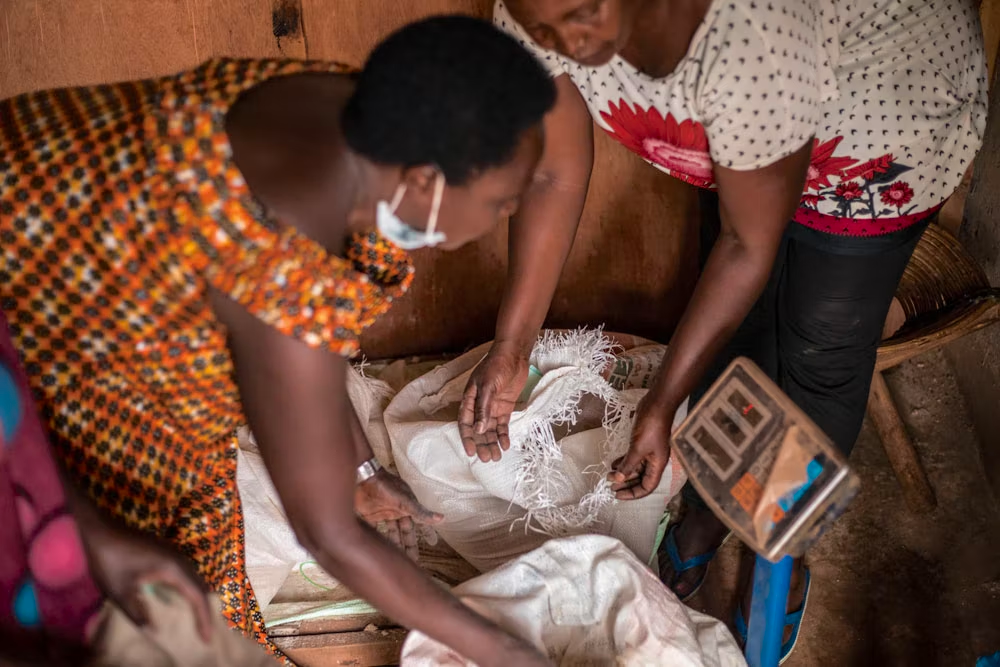 Photo: Heifer International
Photo: Heifer InternationalThe women bought 10 bags of feed to start, which increased to 15 bags and later to 25. When demand continued to grow, they pooled more of their money and took a loan from the government to place their first bulk order — 5 tons of feed. Then they rented a store and hired someone to run sales. Today, the Urumuri group also raises and sells chickens to add to their collectively earned income.
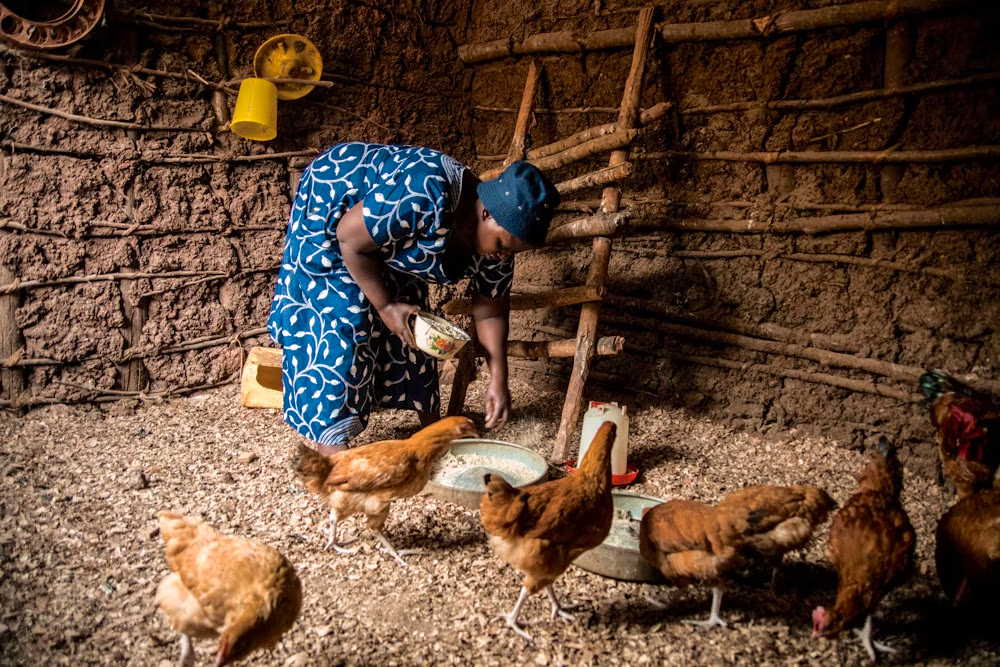 Photo: Heifer International
Photo: Heifer InternationalBefore the business, it was very difficult for Dative Mujawamariya to support her family. She had to do casual farming activities for others and informal construction work to get by. At one point she tried raising goats to pay for her children’s education, but the business quickly collapsed.
“In the group, I learned how to save money and build my focus and vision in order to work toward achieving something,” she said.
“A lot has changed since I started working in the group,” she said. “I am more self-confident and I am able to borrow from the group to solve small problems that require money.”
Motivation for Transformation
Group members aren’t just receiving financial benefits. Their collective effort builds social capital, creating a foundation for the women to learn from each other, support one another, and boost each other’s confidence and sense of agency.
“There is benefit in working with others,” says Dative Mukayisenga, another member of the group and a mother of seven.
“When I meet with the group, I feel happy. I was motivated by the development others had achieved and I felt compelled to improve as well.”
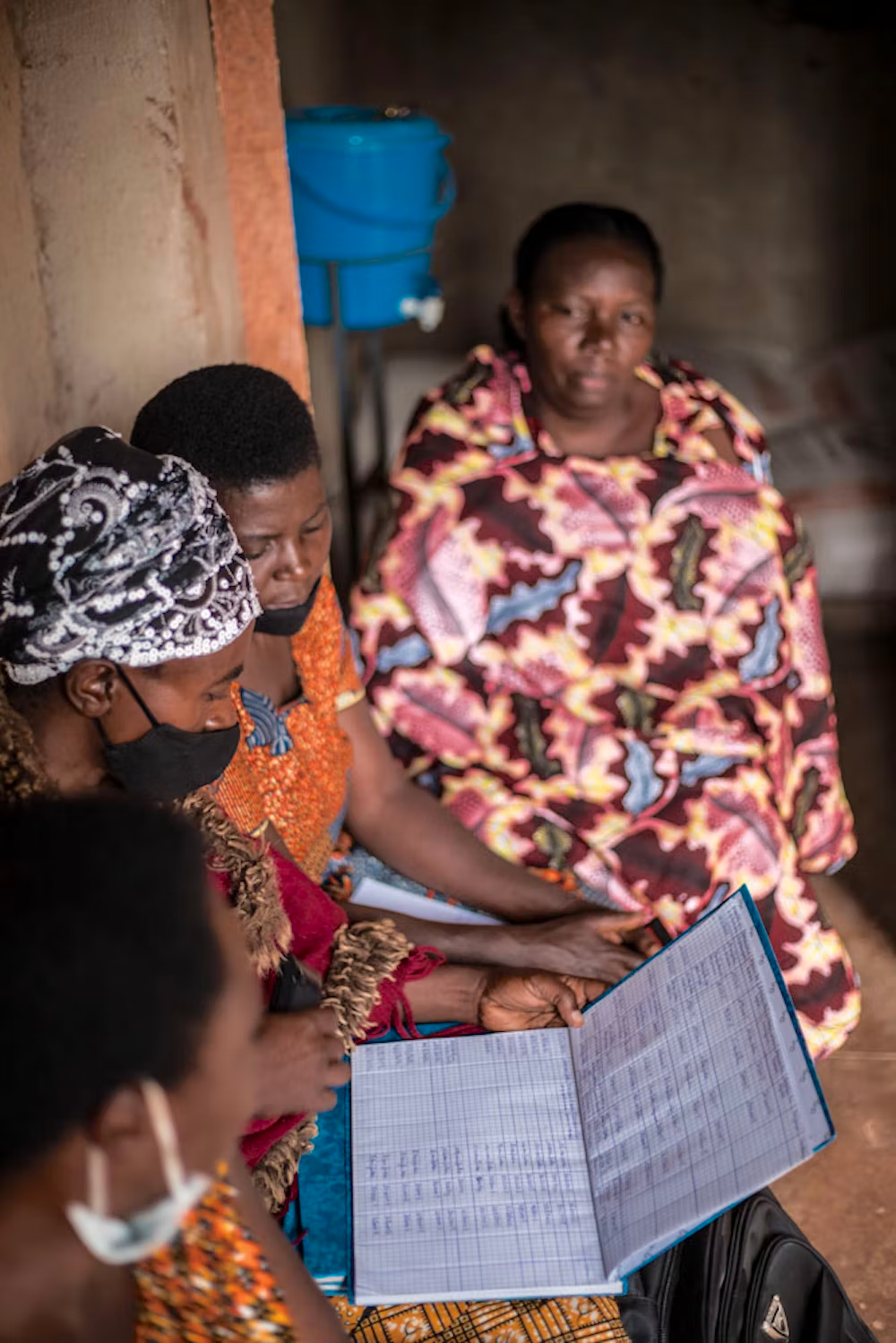 Photo: Heifer International
Photo: Heifer InternationalBefore joining the Livestock Farmer Field School and women’s group, Dative Mukayisenga felt shy about meeting other women. Like many other members of the group, she survived on subsistence farming. She didn’t know how to use fertilizer to boost her productivity and relied on backyard grass and banana leaves to feed her common mixed-breed cattle. Milk production was next to nothing, and she wasn’t earning any income from her farm.
She says joining the group opened her mind. Through the training sessions, Dative Mukayisenga learned how to raise dairy cows and start growing fodder. She now uses zero-grazing — the practice of harvesting fresh grass for direct feeding — to ensure higher milk production, and she built a shed to keep her cows safe. She gained the confidence she needed to venture into modern crop farming and access to loans to help her grow.
The Urumuri group now has 29 active members and, like them, life for Dative Mukayisenga and her family looks completely different now than it did a few years ago. She went from not earning an income to making a minimum of $200 per season after expenses.
She’s tripled her production of corn and quadrupled her production of beans. Her cows have enough fodder to eat, and milk production has more than doubled — she has enough to sell at the nearest milk collection point and to provide for her children’s nutrition. She employs two people to take care of her cows and four seasonal workers to tend to the crops.
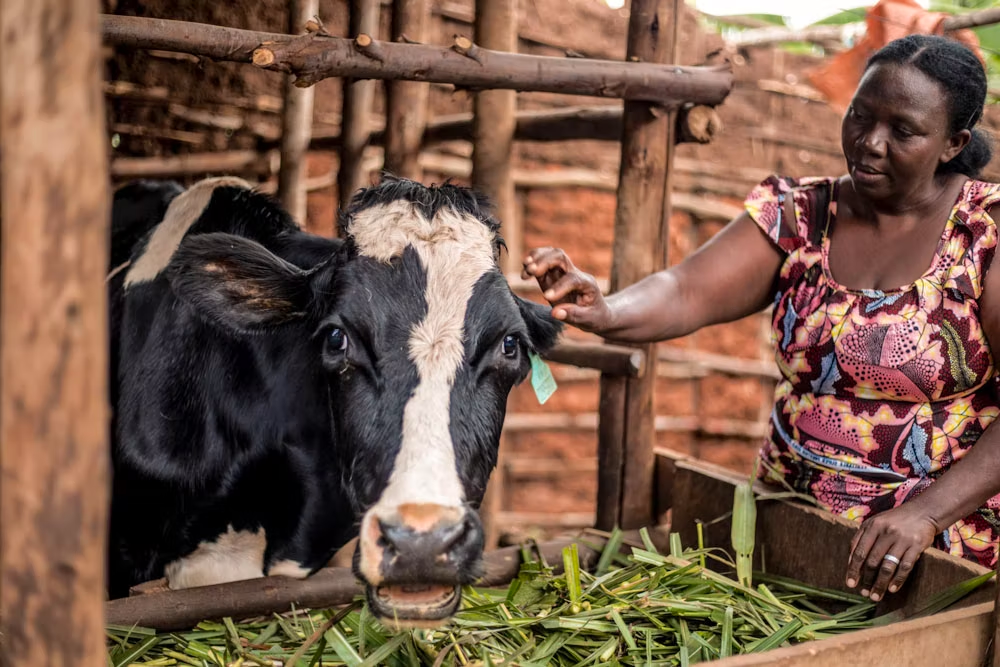 Photo: Heifer International
Photo: Heifer InternationalDative Mukayisenga says her family can easily meet their basic needs now, including health insurance and school fees, and she and her husband are renovating their home and saving to buy a car.
“What Heifer gave me was more than any tangible material,” she said. “When someone gives you knowledge, that person has given you everything.”
This article was originally published by Heifer International
